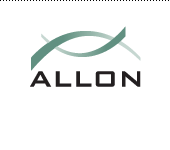
June 24, 2008 -
Anavex Life Sciences Corp. ("ANAVEX") (OTCBB AVXL) announces its participation at the
International Conference on Alzheimer's Disease 2008 (July 26-31, 2008, Chicago, USA), where it will present results obtained with ANAVEX 1-41 demonstrating a protective effect against the neurotoxicity of amyloid (beta)25-35 peptide (A(beta)25-35) in mice. This peptide is used to mimic the neurodegenerative processes found in Alzheimer's disease (AD) and help identify the neuroprotective effects of the ANAVEX compound in order to establish its potential for further development.
The two outstanding aspects of the results to be presented are:
1) The very low doses of ANAVEX 1-41 (30-100 micrograms/kg, ip) at which we attain neuroprotective results, indicating significantly greater potency than other pharmacological agents. The neuroprotection was specifically assessed in the hippocampus, an area highly implicated in Alzheimer's disease. This very significant neuroprotective activity of ANAVEX 1-41 was found to be related to its combined sigma-1 and muscarinic effects.
2) The novel anti-apoptotic mechanism of ANAVEX 1-41 that was attained at extremely low doses of ANAVEX 1-41 (100-fold below the threshold for unwanted muscarinic effects). Apoptosis is the predominant pathophysiological aspect of the brain degeneration in AD, and protection against this process could be an important therapeutic strategy. In particular, the inositol triphosphate receptors calcium channels (IP3R) upregulation and endoplasmic reticulum (ER) stress sensors modulation maintained the ER and the mitochondrion in the unfolded protei response (UPR) adaptative status and protected against the triggering of apoptotic processes.
Unlike the challenge of pro-amyloid and anti-amyloid theories of AD, Anavex Life Sciences' SIGMACEPTOR™ Discovery Platform sigma-1 activator molecules target neuron structures (ER, mitochondrion) with the goal of preventing the neurodegenerative action of the disturbed biochemical pathways and channels (UPR, IP3R, Bcl-2, apoptosis), which recently emerged as putative crucial factors in AD as well as many other neurodegenerative diseases... Anavex Life Sciences' Press Release -
 21 August 2008 - Ablynx [Euronext Brussels: ABLX], a pioneer in the discovery and development of Nanobodies, a novel class of antibodyderived therapeutic proteins, announced that the Alzheimer’s disease collaboration with Boehringer Ingelheim was proceeding well and therefore the research funding has been extended for another year.
21 August 2008 - Ablynx [Euronext Brussels: ABLX], a pioneer in the discovery and development of Nanobodies, a novel class of antibodyderived therapeutic proteins, announced that the Alzheimer’s disease collaboration with Boehringer Ingelheim was proceeding well and therefore the research funding has been extended for another year.
 July 28, 2008.
July 28, 2008. 

 July 30, 2008 - Clinical trial data presented to two scientific workshops at the
July 30, 2008 - Clinical trial data presented to two scientific workshops at the  July 28, 2008 –
July 28, 2008 –  ...
...

